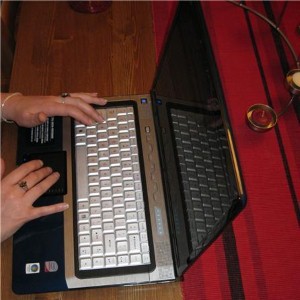
Laptop hardware problem: No sound
By admin on September 16, 2011
Sound problems are one of the more common maladies to befall laptops. Typically a sign of a hardware issue, these situations can sometimes result in cases where the laptop's speakers stop working altogether.
While a laptop repair expert may need to handle major sound troubles, there are a few things users can check at home to diagnose the problem.
Check #1: Volume controls
Users should first verify that they haven't simply turned off the volume somewhere. Many laptops have their own, external volume controls on the top or on the side of the keyboard. The same is true for external speakers that may be connected to the laptop. Windows also has its own volume control in the bottom right hand corner of the screen, while individual programs, such as music players, have options to adjust the volume as well. Users should first run through each of these controls to see if any are simply turned down.
Check #2: Hardware and drivers
If the troubles still exist, users can check their laptop's hardware devices for problems. Laptops use processors to play sounds, while regular desktops have sound cards. Both can be checked in the same menu.
1. Click "Start" and open "Control Panel."
2. Select "System" or "System and Maintenance"
3. Open "Device Manager."
4. Double-click "Sound, video and game controllers."
Clicking any one of the available audio codecs opens a dialog box that describes the processes' status and properties. If any one of the devices is damaged, users can click the "Troubleshooting" button to find solutions.
In the same location, users will be able to check the status of their drivers. Sometimes, a computer will stop playing sound after it has been upgraded from one Windows operating system to another. Its old drivers may no longer be compatible with the newer version of Windows. As a result, users may simply need to download updated drivers to regain their sound.
If these options fail, consumers are advised to take their computer to a Virginia laptop repair specialist for more experienced analysis.
For a Free Computer Repair Quote Call (202) 670-9966
Related Laptop Repair Articles
Buying the right laptop computerThe problem with touchscreens: a Windows 8 preview
How to Check for Hard Drive Errors on Windows 8
Keeping Your Data Safe
Help! My laptop sounds like a lawnmower



Leave a Reply